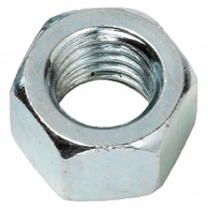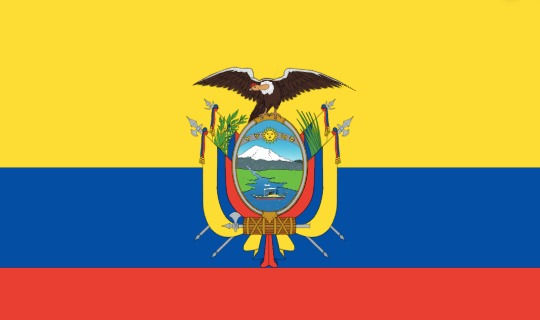Informal Practices in Colombia: "Rosca"
- Adriana, Yvonne & Ludovic
- Dec 15, 2019
- 5 min read
Updated: Dec 16, 2019

ROSCA
Keywords: power, loyalty, access, closed, influence, favours, employment.
Overview:
According to the Dictionary of the Spanish Language (DRAE, 2019), a rosca is a circle or oval object, with a hole in the middle. In its literal translation, it is used to refer to a nut (metal part) (Fig. 1) or a king cake (Fig. 2). In Colombia, it is also used informally to refer to a closed and influential circle of people, based on loyalty and common aims. Roscas can be found in most social circles, such as in politics, businesses, schools etc.


Fig.1 Fig.2
What is a rosca?
First, have a look at how Colombians answer this question:
A rosca is a closed group, based on friendship and common preferences, that works toward realising members’ objectives.
Members’ primary bonds are of friendship, loyalty and solidarity (José Fernando, 2009: 178-179), all of which are developed overtime, making roscas exclusivist by nature. Members tend to have the same economic and social status and usually refer to each other as compinches, an equivalent for the English “sidekick”.

The secondary bond that holds the group together is convenience (ibid.). Making use of endogenous means – power and mutual help – members can easily achieve personal or group goals (José Fernando, 2009: 181). Direct benefits of these groups are usually related, but not limited to, employment or professional aspirations, exchange of favours and privileged access to certain facilities (Español Natural, 2015). This exchange of favours takes the form of a tacit debt because friendship is the primary factor that preconditions mutual help (José Fernando, 2009: 180 – 181). This modus operandi maintains the cohesiveness and inter-dependability of the group.
Roscas are frequently encountered in politics, business, the music industry, and even schools (Martínez, 2017, José Fernando, 2009, Cárdenas Lince, 2012).
How roscas work and why they are informal
Roscas work through exercising influence or power over others (Salgado et. al., 2002: 29), disregarding established rules and putting personal values before the normative principles that usually govern political and social institutions (José Fernando, 2009: 181). This disregard to established rules is what actually constitutes the regulatory function of roscas. Their informality is sometimes a precautionary measure to lived or perceived risks (ibid.:180). Moreover, it constitutes an expression of members’ preference to work with people who they personally know and of unquestionable loyalty. Access to roscas is so restricted that even marriage among members of the same group is a common practice in preserving loyalty (José Fernando, 2009: 180). Therefore, in roscas, loyalty is more important than meritocracy. Most often jobs “have surnames”, meaning that they get passed on from generation to generation (Cárdenas Lince, 2012, Serres, 2005).

This informal practice affects most Colombians because employment is one of the spheres highly regulated by roscas. As we have seen above, often “jobs have surnames”. People usually find work through personal contacts or palancas and not knowing a rosca member or not being part of the rosca greatly reduces your chances of finding a job (José Fernando, 2009: 181). This also affects young people who often cannot even gain work experience.
Have a look at how to get a job through a rosca:
“Lo único malo de la rosca es no estar en ella”
Colombians have a popular expression that translates into “The only bad thing about the rosca is not being part of it”. It portrays the moral ambivalence of the systematic use of roscas. Those who criticise roscas often complain about how these groups lead to inequality of opportunity and a devaluation of meritocracy. Those who have access to a rosca use this expression in response to the above complaints, stressing how the benefits of accessing a rosca overcome any pejoratives. This expression also enhances the metaphor behind rosca’s colloquial meaning. Being a closed circle of influential people, rosca’s exclusive nature leads to the possibility of having inclusive and strong ties among members. Therefore, its exclusivism and inherent inequality of opportunity do not have a negative connotation, given the wide array of benefits one can access once inside a rosca.
Rosca and palanca
Rosca is different from other informal practices such as palanca. Achieving objectives in a rosca is carried out through members of the closed group and is a matter of strengthening relationships and reinforcing loyalty. A palanca, on the other hand, entails a system of indebtedness that favours both agents of the relationship (ibid.: 180). It results into a closer relationship between the agents only because it is based on these reciprocal debts and this relationship does not necessarily imply loyalty. In other words, exchanging favours in a rosca comes as a result of a close relationship, whereas exchanging favours leads to strong ties between those engaging in a palanca.
Even though these two practices are different, they are often used in conjunction, especially by those who are not inside a rosca. Outsiders can still use a palanca to obtain a favour from a rosca member, but given the exclusivist nature of the rosca, this does not imply that they become part of the group.

Understand how to use a palanca to access a rosca
by having a look at our interviewee’s solution to get
a ticket for Shakira’s concert.
How to use the term rosca in Spanish
The term can be phrased in a number of ways that offer nuances to the central concept of rosca. You can “have arosca” (“tener una rosca”) meaning that you know someone from the influential group. In this case, it can be interchangeably used with “palanca”. You can “be in a rosca” (“estar en la rosca”), which implies that you are a member of the rosca, a “compinche”. You can also “make a rosca” (“hacer una rosca”), so you behave obsequiously in relation to the member of a rosca in order to gain their favour. The first two are the most commonly used out of the three but they are all very popular in Colombia (Word Reference, 2008).
Bibliography:
Cárdenas Lince, H. (2012). Rosca o educación?. [online] www.elmundo.com. Available at: https://www.elmundo.com/portal/opinion/columnistas/rosca_o_educacion.php#.XeKK4y2cZQI [Accessed 10 Dec. 2019].
DRAE. 2019. rosca | Diccionario de la lengua española. [online] «Diccionario de la lengua española» - Edición del Tricentenario. Available at: https://dle.rae.es/?w=rosca [Accessed 10 Dec. 2019].
Español Natural (2015). Spanish course | Expresión Lo malo de la rosca es no estar en ella. [online] Curso de español online. Available at: http://www.naturalspanish.co/spanish-course-expresion-lo-malo-de-la-rosca-es-estar-en-ella/ [Accessed 10 Dec. 2019].
Martínez, Ó. (2017). El poder de la rosca ambiental | Blogs El Espectador. [online] Blogs El Espectador. Available at: https://blogs.elespectador.com/economia/el-mal-economista/poder-la-rosca-ambiental [Accessed 10 Dec. 2019].
Salgado, E., Molina, C., Orjuela, R. and Pérez, C., (2002). ¿ Tiene algún efecto la rosca? Efectos del liderazgo intercambio líder-miembro en la organización. Academia. Revista Latinoamericana de Administración, (28), pp.27-50.
Serres, F. (2005). UNIVERSIDAD Y PODER: DE LA ÉLITE A LA ROSCA. [online] El Tiempo. Available at: https://www.eltiempo.com/archivo/documento/MAM-1957314 [Accessed 10 Dec. 2019].
Word Reference (2008). Tener rosca con / estar en la rosca. [online] WordReference Forums. Available at: https://forum.wordreference.com/threads/tener-rosca-con-estar-en-la-rosca.958264/ [Accessed 10 Dec. 2019].






תגובות